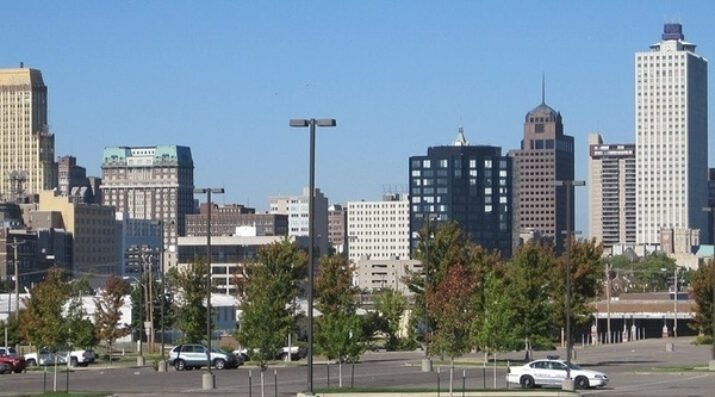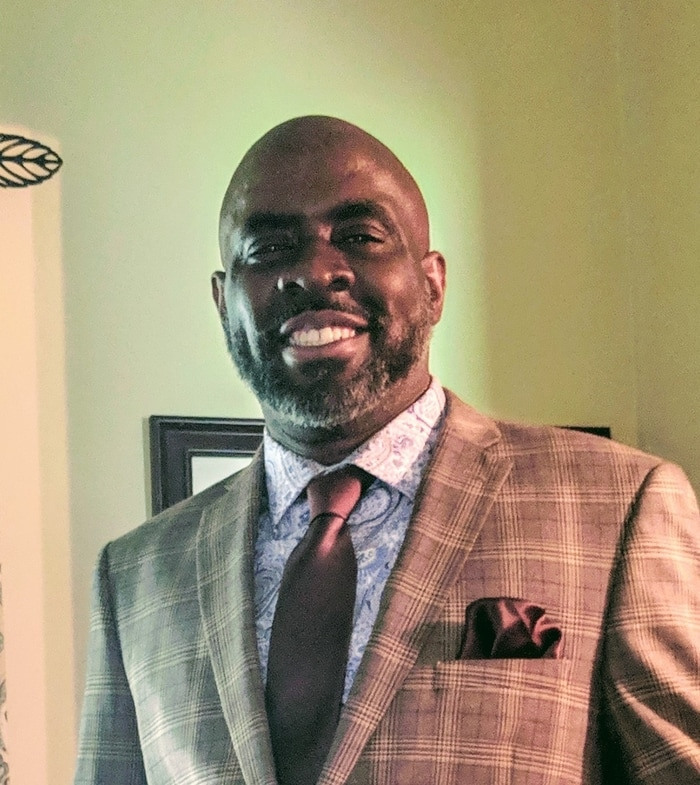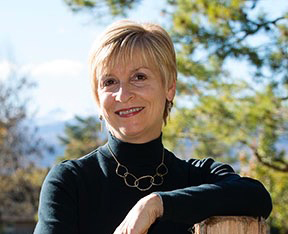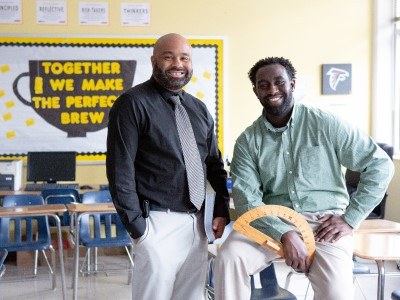Building Community
Leadership in and for Community
Topics

When educators design and create new schools, and live next gen learning themselves, they take the lead in growing next gen learning across the nation. Other educators don’t simply follow and adopt; next gen learning depends on personal and community agency—the will to own the change, fueled by the desire to learn from and with others. Networks and policy play important roles in enabling grassroots approaches to change.
Practitioner's Guide to Next Gen Learning
TFA Memphis supports educators to be community leaders and change agents as the program's alumni engage with each other and their community.
For many schools and districts in the NGLC network, community engagement is an essential component of the collective work to transform learning for equity and lifelong learner success. As with most facets of next gen learning and school design, however, one size does not fit all. Engagement with the community takes multiple forms, aligning with a shared vision of student learning and a definition of learner success that all stakeholders create together.
For example, Oakland Unified School District pairs teachers with community professionals to design real-world projects to enhance the authenticity of their project-based learning approach. Schools with a focus on career preparation, like those in the Center for Advanced Professional Studies (CAPS) network, connect learners with industry partners directly, via internships. One of the many ways Vista Unified School District defines community engagement is by building relationships with parents through a Family and Community Engagement (FACE) Network. What they all hold in common is an understanding that schools are part of a larger ecosystem.
At Teach For America (TFA), community engagement means cultivating educators for leadership roles, both in local schools and in the wider community. After fulfilling their two-year commitment to teach in a low-income community, educators in the TFA corps become part of a large, active, and diverse cohort of alumni, many of whom remain in the cities where they taught and continue to support those communities with their leadership.
For this edition of Friday Focus: Practitioner’s Guide to Next Gen Learning, I spoke to Ramon Williams, himself a former TFA corps member, who is now the Managing Director, Alumni Leadership Development at TFA Memphis, Tennessee. Since TFA joined the Memphis community in 2006, over 800 educators have served in district schools and are now part of the local alumni network. Like Ramon, the vast majority—more than 600—continue to live and work in the Memphis area. Though many are still educators or school leaders, Ramon points to a variety of ways alumni serve as leaders—including in law, medicine, business, and social innovation. In our conversations, Ramon spoke about:
- His work at Teach For America
- Supporting alumni to be community leaders and change agents
- A shared vision of equity and innovation in education
Strength in Numbers
How do we lead with love and serve with humility?
—Ramon Williams
Less than a decade ago, Ramon was a vice-president at JP Morgan Chase. One day, as he recalls, “TFA just popped up on my screen. I knew nothing about it, but I had always wanted to be a teacher. So I signed up to join the corps.” By 2012, he was teaching third grade math at Egypt Elementary in Memphis. After that, he took on coaching roles to support fellow TFA educators, including becoming a manager of coaches and a director of alumni leadership development. In addition to his role supporting TFA alumni, Ramon currently serves as a math interventionist at his former placement school, Egypt Elementary. To illustrate the ubiquity of TFA alumni in Memphis, Ramon points out—with a chuckle—that his own daughter’s teacher at Egypt Elementary is one of the educators he once coached.

Ramon Williams, former banking vice-president, today supports TFA alumni to be leaders in the work to reimagine education in Memphis. (Courtesy of Ramon Williams)
According to Ramon, coaching has always been a cornerstone of supporting TFA corps members to be leaders. So as his role shifted to working with alumni, he began to wonder, “How would it look to extend coaching to alumni? I wanted to serve every aspect of our alumni, including those not in education—all alumni in the region,” he explains. “How do we keep them all connected and celebrate all that they have to offer?”
Although many TFA alumni pursue careers in school leadership as instructional coaches, deans, or principals, Ramon notes that “a lot of our alumni want to pursue law or policy or be a doctor in low-income areas. They still want proximity to other corps members and to be part of the community we all serve.” For some, that equates to direct support of corps members—for example, medical doctors mentoring biology teachers—or managing affinity spaces for teachers’ identity work. Others, like a corps alumna who went on to become a dentist, make the commitment to serve low-income communities in their new careers. Ramon also gives the example of a former corps member who, as a teacher, saw a need “to give kids of color access to high-level science materials” and used what he developed in the classroom to found a company, PositivePhysics, an online platform that emphasizes critical thinking and real-world application of physics content.
A Fellowship of Leaders
I believe being an educator is the purest form of social justice. We are helping students discover and cultivate the tools they need to change the world. We have the ability to empower kids to transform and influence their community or to be complacent within it.
—TFA Memphis Leadership Accelerator Fellowship member
To empower alumni, as their website states, to be leaders in “changing the systems that contribute to educational inequity,” TFA Memphis sponsors a variety of local fellowships, including one for aspiring school leaders and a Social Justice Fellowship. New this year is the Leadership Accelerator Fellowship. Its purpose, Ramon explains, is to support school-based alumni “to create systems transformation in their schools.”
However, the scope of the vision for change extends beyond the school walls and reflects a community-engaged mindset. Ramon describes this new fellowship as “part of our Memphis region’s work of transforming the city, country, and world by reinventing public education. As such, this fellowship exists to empower and enable Memphis alumni to grow their personal leadership, unite as a community, and to lead innovative systems to transform the learning experience of children in their local contexts.”
This focus on the power and responsibility of schools to serve the greater community is also evident in the selection criteria for the fellowship: “We look for people who have the heart of kids in mind,” Ramon says, “people who care about Memphis and want to change the education ecosystem” and are willing to apply their leadership skills to this vital work.
As one Leadership Accelerator fellow expressed at a recent virtual convening, “I believe in the power of all students and the critical need that exists for a different system of education. I also believe that the required change will only come when dedicated, imaginative, driven educators stick with the challenge.”
The Imperative for Change
This is a perfect time to reimagine student learning because the world is constantly changing, our students are changing, and we have to provide what works for the current climate of students. Doing what “worked for us” does not and will not work for our kids right now. We must do something different in order to get a different result, which includes bringing about change, incorporating our students and parents in making decisions, and doing what's best for our kids.
—TFA Memphis Leadership Accelerator Fellowship member
Ramon cites a number of reasons why he and the alumni fellows are “rethinking education and pivoting the ecosystem to support students to be 21st century-ready.” For example, he refers to competencies like those in the NGLC MyWays Student Success Framework, like creativity, collaboration, and critical thinking, skills that traditionally “have not been done at the school level, but are needed to grab hold of the jobs of the future.”
This whole-human and forward-thinking approach to education is evident in the design of the Leadership Accelerator Fellowship. Its content focuses not only on supporting learners to achieve high academic standards, but also social emotional learning, race and justice education, and social innovation. According to Ramon, the alumni fellows will demonstrate their year of learning with a capstone project, in which they will create a ready-to-implement transformed learning design.
According to Ramon, the goal of transforming learning with equity, social justice, and the community at the center is not in direct response to the events of this year. However, he notes that the pandemic “really lifted up the veil of systemic racism. It calls us to be and do differently in real time. We all know that education will never look the same as it did before. I’ve approached my work not with dismal gloom but with curiosity and a keen eye for creativity. Even virtually, this is the moment we can spin up for engagement and innovation. We can show up differently—open-hearted and always curious— and know there is not just one way.”
Ramon’s final words touch on the importance of engagement and collaboration in transforming learning and the community: “I am very proud of the work that we are doing with alumni in Memphis. I look forward to continuing to work toward an equitable world for all students alongside everyone in the Memphis educational ecosystem.”
Resources
- The Alumni Network page on the TFA Memphis website includes alumni profiles, information on alumni opportunities like fellowships, and ways to connect with fellow former TFA corps members.
- In this article from Educational Leadership, “Why Teachers Must Become Change Agents,” Michael G. Fullan argues for making the moral purpose and goals of change explicit and providing educators with the tools to engage in change productively.
- The report Recasting Families and Communities as Co-Designers of Education in Tumultuous Times, from the National Education Policy Center explores how justice-based approaches to family engagement can enable parents and families, particularly from communities of color, to contribute as fellow leaders in transforming schools and educational systems to better serve all children, families, and communities.
- “Opportunity, Work, and the Wayfinding Decade,” Report 1 of NGLC’s MyWays Student Success Series, traces the growing opportunity gap in the US and examines employment challenges and labor market shifts that have transformed the journey from high school to gainful employment into a highly complex and risky wayfinding decade for today’s youth.
Photo at top by Thomas R Machnitzki.




